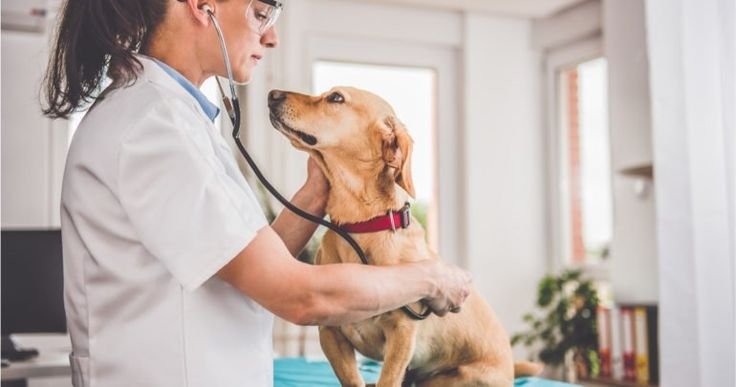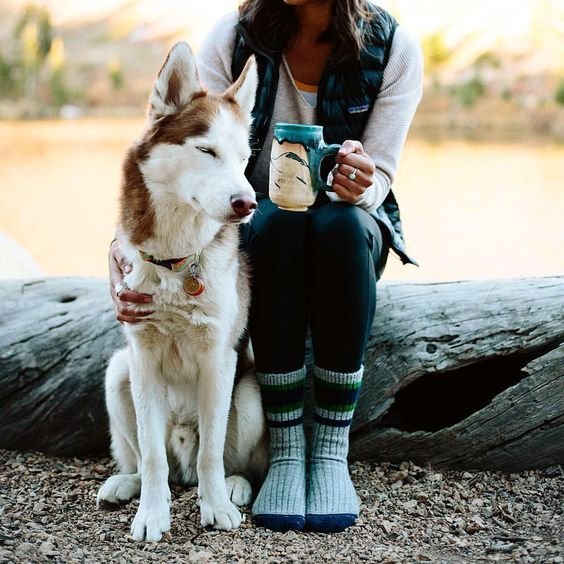The Ultimate Guide to Ensuring Your Dog’s Health

Dog’s health. Keeping your dog healthy is essential for their happiness and longevity. A well-cared-for dog is not only a joy to have around but also lives a longer, more fulfilling life.
In this guide, we’ll cover everything you need to know about maintaining your dog’s health, from proper nutrition and exercise to routine veterinary care and mental stimulation.
Nutrition for Dogs
A balanced diet is the cornerstone of good health for your dog. Proper nutrition supports their growth, energy levels, and overall well-being.

Importance of a Balanced Diet
Dogs need a variety of nutrients, including proteins, fats, carbohydrates, vitamins, and minerals. A balanced diet ensures they get everything they need to stay healthy and active.
Choosing the Right Dog Food
When selecting dog food, consider your dog’s age, breed, size, and any specific health concerns. Look for high-quality ingredients and avoid foods with excessive fillers, artificial preservatives, or low nutritional value.
Homemade vs. Commercial Diets
Both homemade and commercial diets can be healthy if done correctly. Homemade diets require careful planning to ensure they meet all nutritional requirements. Commercial diets are convenient and formulated to provide balanced nutrition.
Exercise and Physical Activity
Regular exercise is vital for maintaining your dog’s physical and mental health. It helps prevent obesity, supports joint health, and reduces behavioral problems.
Benefits of Regular Exercise
Exercise helps maintain a healthy weight, strengthens muscles, improves cardiovascular health, and reduces stress and anxiety in dogs.
Types of Exercises Suitable for Dogs
Activities like walking, running, swimming, and playing fetch are excellent forms of exercise. Tailor the type and intensity of exercise to your dog’s breed, age, and health status.
Creating an Exercise Routine
Establish a consistent exercise routine that fits your schedule and your dog’s needs. Aim for at least 30 minutes of physical activity per day, adjusting based on your dog’s energy levels and health.
Routine Veterinary Care
Regular veterinary check-ups are crucial for early detection and prevention of health issues. Keep up with vaccinations, parasite prevention, and dental care to ensure your dog stays healthy.

Importance of Regular Vet Check-ups
Annual vet visits help monitor your dog’s health, catch potential issues early, and provide necessary vaccinations and treatments.
Vaccinations and Parasite Prevention
Stay up-to-date with vaccinations to protect your dog from diseases like rabies, distemper, and parvovirus. Regularly use flea, tick, and worm preventatives.
Dental Care
Good dental hygiene prevents dental diseases that can lead to more serious health problems. Brush your dog’s teeth regularly and provide dental chews.
Grooming and Hygiene
Regular grooming keeps your dog looking and feeling good. It also helps you spot any potential health issues early.

Importance of Regular Grooming
Grooming removes dead hair, dirt, and parasites from your dog’s coat, promotes healthy skin, and reduces shedding.
Basic Grooming Tips
Brush your dog’s coat regularly, bathe them as needed, trim their nails, and clean their ears. Use grooming sessions as an opportunity to check for any abnormalities.
Dealing with Common Skin Issues
Common skin issues include allergies, hot spots, and infections. Keep an eye out for excessive scratching, redness, or hair loss, and consult your vet if you notice any problems.
+Understanding and Treating Dog Constipation: A Comprehensive Guide
Mental Health and Stimulation
Just like humans, dogs need mental stimulation to stay happy and healthy. Mental health is a crucial aspect of overall well-being.
Importance of Mental Health for Dogs
Mental stimulation prevents boredom, reduces anxiety, and promotes cognitive function. It’s essential for a well-rounded, happy dog.
Activities to Keep Your Dog Mentally Stimulated
Provide puzzle toys, interactive games, and training sessions. Regularly introduce new toys and activities to keep their mind engaged.
Signs of Mental Health Issues
Signs of mental health issues in dogs include excessive barking, destructive behavior, withdrawal, and changes in eating or sleeping patterns. Consult your vet if you notice these behaviors.
Common Health Issues in Dogs
Being aware of common health issues and their symptoms can help you take swift action when needed.
Identifying Symptoms of Common Diseases
Common health issues include ear infections, skin allergies, dental diseases, and gastrointestinal problems. Look out for signs like excessive scratching, unusual lumps, changes in appetite, or vomiting.
Preventative Measures
Preventative measures include regular vet visits, vaccinations, proper nutrition, and maintaining a clean living environment.
When to Seek Veterinary Care
If your dog shows signs of illness or injury, such as persistent vomiting, diarrhea, difficulty breathing, or sudden behavioral changes, seek veterinary care immediately.
Senior Dog Care
As dogs age, their health needs change. Senior dogs require special attention to maintain their quality of life.

Understanding the Needs of Senior Dogs
Older dogs may have decreased energy levels, joint issues, and changing dietary needs. Regular vet check-ups are crucial to monitor their health.
Dietary Adjustments for Older Dogs
Senior dogs often need diets lower in calories but higher in certain nutrients like fiber and joint-supporting ingredients. Consult your vet for dietary recommendations.
Managing Age-Related Health Issues
Common age-related issues include arthritis, vision and hearing loss, and cognitive decline. Medications, supplements, and lifestyle adjustments can help manage these conditions.
Puppy Health
Puppies have unique health needs to support their growth and development.
Ensuring the Health of a New Puppy
Provide a balanced diet, regular vet check-ups, and vaccinations to keep your puppy healthy. Early socialization and training are also crucial.
Key Vaccinations and Health Checks
Puppies need a series of vaccinations starting at 6-8 weeks old, including shots for distemper, parvovirus, and rabies. Regular health checks ensure they are growing properly.
Socialization and Early Training
Socialize your puppy with different people, animals, and environments to promote confident and well-behaved adult behavior. Basic training from a young age sets the foundation for good manners.
+Ultrak9 Pro: the supplement that turns your dog into a ferocious wolf again
Nutrition Supplements for Dogs
Supplements can support your dog’s health, especially if they have specific dietary needs or health conditions.

Role of Supplements in a Dog’s Diet
Supplements can provide additional nutrients that might be lacking in their diet or support specific health needs like joint health, skin and coat health, or digestive support.
Common Supplements and Their Benefits
Popular supplements include omega-3 fatty acids, glucosamine, chondroitin, probiotics, and multivitamins. Each has specific benefits, such as reducing inflammation or improving gut health.
Consulting Your Vet About Supplements
Always consult your vet before introducing any supplements to ensure they are safe and necessary for your dog.
Healthy Weight Management
Maintaining a healthy weight is crucial for preventing various health issues, including arthritis, diabetes, and heart disease.

Importance of Maintaining a Healthy Weight
A healthy weight helps prevent chronic conditions and ensures your dog remains active and comfortable.
Tips for Weight Management
Feed a balanced diet, avoid overfeeding, and ensure regular exercise. Monitor your dog’s weight and body condition regularly.
Recognizing Obesity in Dogs
Signs of obesity include excessive fat, difficulty moving, and shortness of breath. Consult your vet if you suspect your dog is overweight.
First Aid for Dogs
Knowing basic first aid can help you manage minor injuries and emergencies until you can get veterinary care.
Basic First Aid Tips for Dog Owners
Learn how to clean and bandage wounds, perform CPR, and recognize signs of shock or poisoning.
Handling Common Injuries
Common injuries include cuts, burns, and insect stings. Keep a first aid kit with essentials like bandages, antiseptic wipes, and tweezers.
When to Seek Emergency Care
Seek immediate veterinary care for severe injuries, difficulty breathing, persistent vomiting, or any signs of distress.
Creating a Safe Environment
A safe living environment reduces the risk of injuries and health issues for your dog.
Dog-proofing Your Home
Remove toxic plants, secure electrical cords, and ensure that small objects are out of reach to prevent choking hazards.
Safe Outdoor Spaces
Ensure your yard is securely fenced, free from harmful plants, and has shaded areas. Supervise your dog during outdoor activities.
Identifying Household Hazards
Common household hazards include cleaning products, medications, and certain foods. Keep these out of reach and use pet-safe alternatives when possible.
Traveling with Your Dog
Traveling with your dog can be enjoyable if you take the necessary precautions to ensure their safety and comfort.

Tips for Safe Travel
Use a secure crate or harness, keep identification tags on your dog, and ensure they are comfortable during travel.
Health Considerations During Travel
Bring your dog’s medical records, a first aid kit, and ensure they are up-to-date on vaccinations and parasite prevention.
Traveling by Car, Plane, or Public Transport
Each mode of travel has specific considerations. Ensure your dog is accustomed to the travel method, and check with carriers for any specific requirements.
Conclusion
Your dog’s health is a lifelong commitment that involves regular veterinary care, proper nutrition, exercise, mental stimulation, and a safe living environment. By staying proactive and attentive to your dog’s needs, you can ensure they live a happy, healthy, and fulfilling life.
FAQs
How often should I take my dog to the vet? For most dogs, annual check-ups are sufficient. Puppies, senior dogs, and those with health issues may require more frequent visits.
What are the best foods for my dog’s health? The best food depends on your dog’s age, breed, and health status. High-quality commercial dog foods and well-planned homemade diets are both good options.
How can I tell if my dog is overweight? Check for a visible waistline, palpable ribs without excess fat, and consult your vet for a body condition score.
What should I include in my dog’s first aid kit? A basic first aid kit should include bandages, antiseptic wipes, tweezers, a digital thermometer, and your vet’s contact information.
How can I keep my dog mentally stimulated? Use puzzle toys, training sessions, interactive games, and regular exercise to keep your dog’s mind active and engaged.




0 Comments